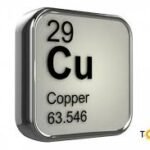Chemistry and Resource Utilization Technology: Harnessing the Power of Resources
Welcome to our website dedicated to the fusion of chemistry and resource utilization technology. The collaboration between these two fields is vital for optimizing the use of natural resources and promoting sustainable development. Join us as we explore the intersection of chemistry and resource utilization technology, uncovering innovative applications and advancements that are shaping the future of resource management.

- Resource Exploration and Extraction: Chemistry plays a crucial role in resource exploration and extraction processes. Chemists develop methods for identifying and characterizing mineral deposits, oil and gas reserves, and other valuable resources. These technologies ensure efficient and responsible extraction practices, minimizing environmental impact and maximizing resource recovery.
- Sustainable Materials: Chemistry drives advancements in sustainable materials. Chemists work on developing eco-friendly alternatives to conventional materials, such as biodegradable plastics, bio-based polymers, and recycled materials. These innovations help reduce the depletion of natural resources and minimize the environmental footprint of various industries.
- Renewable Energy: Chemistry contributes to the development of renewable energy technologies. Chemists work on innovations like solar cells, fuel cells, and energy storage systems. These technologies harness renewable energy sources such as sunlight, wind, and biomass, reducing reliance on fossil fuels and mitigating climate change.
- Catalysis and Green Chemistry: Chemistry plays a pivotal role in catalysis and green chemistry. Chemists design and optimize catalysts that enable more sustainable and efficient chemical reactions. Green chemistry principles promote the use of non-toxic substances, energy-efficient processes, and waste reduction, ensuring minimal environmental impact in chemical manufacturing.
- Recycling and Waste Valorization: Chemistry is instrumental in recycling and waste valorization practices. Chemists develop technologies for the efficient recycling and conversion of waste materials into valuable resources. These innovations help minimize landfill waste, conserve resources, and reduce the demand for virgin materials.
- Resource Efficiency and Conservation: Chemistry contributes to resource efficiency and conservation efforts. Chemists work on developing technologies and processes that optimize resource use, minimize waste generation, and increase overall efficiency in various industries. These advancements help achieve sustainable production and consumption patterns.
- Circular Economy: Chemistry plays a vital role in transitioning to a circular economy. Chemists develop strategies and technologies to close resource loops, enabling the recycling, reusing, and repurposing of materials throughout their life cycles. This approach reduces resource extraction, waste generation, and environmental degradation.
At our website, we explore the dynamic fusion of chemistry and resource utilization technology, uncovering innovative applications and advancements that are driving sustainable resource management. Join us as we delve into resource exploration and extraction, sustainable materials, renewable energy, catalysis and green chemistry, recycling and waste valorization, resource efficiency and conservation, and the circular economy. Welcome to a place where chemistry and resource utilization technology converge to harness the power of resources for a sustainable future.

